Men return from war and find it difficult adjusting to the life and country they left behind.
Seyed Hasan held his breath and took a shot that reverberated through all of Nineveh province. No one had taught him by-the-book counter-sniping; rather, he just sort of picked it up through trial and error. Those two years in the ditches of northern Iraq, while I tried to take notes for my damn book, Seyed Hasan, who barely reached my shoulders, would crawl into the spaces no one else had the stomach for and do what needed to be done. The shot that would finally bring down the Chechen “Ghost” would be the talk of the Hashd forces long after our war was over and we had buried our dead and returned to Tehran.
I did what anyone does back home. I drank. Hesitantly at first, and ashamed. Then the floodgates opened. Soon every arak dealer between Imam Khomeini Boulevard and Motahari had my number. Whenever I went online, there would be a fresh funeral for another martyr back there in Iraq. People we’d known. I’d believed the war was over. So why the dying this late?
The war was never completely over.
I drank more.
Until one day Seyed Hasan showed up at my door.
“Arash, you smell like blasphemy.”
“I feel like it.”
He had never been to my place. In general, back in Tehran I tried to keep my distance from the vets of Iraq and Syria. Most of them came from working-class families, and God was their thing. God was my thing too, lately. But only because I’d been having intimations of mortality, and not having God around seemed like a losing proposition.
I said, “I don’t know how to live with peace, Seyed jaan.”
He began weeping right there at the window, which overlooked the synagogue across the street.
It was a Saturday, and it was the month of Ramadan. In the courtyard of the synagogue a fellow wearing a tallit was on his cellphone. I suspected he shouldn’t be on his cellphone on a Saturday, and in the synagogue at that. This was about as much as I knew about the guy’s religion and still I took it personally, with almost a mind to go over to tell him to get off the phone. Then the absurdity of it all hit me — the weeping Seyed Hasan and his legendary kill back in Iraq, my alcohol breath, and that man and his phone in the synagogue during the month of fasting in Tehran.
We were womenless men. We suffered for it. We had no money and the war had been a way out of our gloom. Now what?
That night, Seyed Hasan rode on the back of my bike to Khayyam, near the Grand Bazaar. The area is a desert at night. A lone garbage truck might pass. Otherwise it’s just the city’s street sweepers in their yellow outfits and brooms, and the echo of their rhythmic brushing on tired asphalt.
Another old comrade, Kazem, had become one such sweeper. He said the labor was a ritual that he would never give up, and that it was for the good of the Earth. Before all this, he’d owned a hole-in-the-wall cubicle in the outer reaches of the brassworkers’ quarter in the Bazaar, where he dealt in watches and second-hand shoes. When the war came to Syria, he sold everything to go protect the holy places. In Samarra he fed us, the Iranian contingent, until his money ran out, believing all the while that martyrdom was near and he wouldn’t have to return to Tehran and face the wasteland of no war and no cubicle in the Bazaar.
No such luck.
“Brother Arash, they don’t make posters for the living,” Kazem was saying. He tousled Seyed Hasan’s hair. They’d been inseparable in Iraq, and both had nearly caught it in Syria. Yet here they were, alive and therefore unlucky. “Did you ever finish that book about the war?” he asked.
“Working on it.”
“He drinks,” Seyed Hasan said, ratting on me. “Alcohol.”
“Is this true?”
“I’ve been having a bad season for the last few months. I apologize.”
The three of us looked up simultaneously across the street at the enormous poster of our late commander. His posters had been on display everywhere since winter, when he had been assassinated back in Baghdad. In this poster he looked positively angelic, his determined, angular face burdened with something from the next world, the khaki of his uniform slightly faded as if he was still on a long desert march.
That night I spent with Kazem and Seyed Hasan in the broken place they rented below the Shush district. The place had missing windows, and any Shush junkie could have stepped in to help themselves to nothing. But the half-dozen men who lived there, all of them vets of Syria/Iraq, were not nothing. They’d teach you a lesson if you crossed them. They, too, hadn’t had the luck of martyrdom, and they weren’t celebrated back home for having protected or defended anything. The world had passed them by. I was one of them, except I still believed some book might come out of my troubles. No such luck yet. I had a side job teaching conversational Iraqi Arabic, and that was about it. There was also a club where they’d needed a sharpshooting coach for the rich bastards who lived uptown and didn’t know how to spend their money fast enough. But there were only air guns, the ammo just BB pellets, and the first time I stuck the barrel of the gun in my mouth to chase boredom away the owner politely said that I was fired — you’re not setting the proper example.
I couldn’t argue with that.
Before sunrise, Seyed Hasan woke me up. He had some dates and flatbread and tea for us for our sahari.
“I don’t fast, brother,” I told him. “The month of Ramadan and me, we’re not intimates.”
He eyeballed me. In the tired quiet of Shush, three other veterans were up finishing their brief morning prayers. Kazem slept. He’d sleep right through the day and eat after sunset, before going back to sweep on Khayyam and the wide cobblestone walkway of the Grand Bazaar.
“Is this why we fought? Look at us.”
What could I tell him? A fellow can have a thousand and one reasons for going off to die. If he’s not lucky enough to get his wish, he’s not lucky. Nothing to be done about that.
“Arash, tell me please, is this why we fought? I don’t have a job. I don’t have a wife. I don’t have a future. Our Sardar is dead and they have his posters everywhere. I don’t even have a poster.”
“You want a poster of you? I’ll make you a fucking poster. What do you want me to say?”
“Why did the Americans have to assassinate him?”
“Because he was good at what he did. The best field commander there ever was. He kicked their asses and they were jealous of him.”
“We really were the best, Arash. Weren’t we?”
“We were pretty damn good. You, my friend, were great.”
“Now I live in a half-abandoned building in Shush and push a cart in the Bazaar all day. Do you know how much I make every day?”
“How much, my brother?”
He burst into tears again. The other vets, breaking bread now, turned for a moment to look at us. Then they turned back to chewing in silence.
Abu Amin was apparently coming from Baghdad. This was the gist of our misery. We loved Abu Amin. An Iraqi, he’d been specifically in charge of intelligence for us Iranians operating in northern Iraq and the Syrian border. Mostly he humored us, and tried to make sure we didn’t get ourselves killed. In this effort, his aims and ours were somewhat at odds. But we loved him anyway. During the war he had had the flair of a man engaged in important things. Now he was reduced to coming to Tehran to have his poorly functioning heart operated on. He had written to me and some other guys that he wanted to see us, and that he’d be a guest at Majid Safi’s house.
It was this guy, Majid Safi, that was the real issue. Safi had inherited a cloth business from his baba in one of the prime locations at the smaller Bazaar of Tajrish, in the north end of the city. I’d been there a few times after we all came back, and Safi, imagining I was going to make him the hero of whatever I had been prepaid to write, had invited me up there and fed me kebab and rice. You could say that Kazem, our street-sweeping brother, and Safi were martyrdom’s truth and lie. Whereas Kazem had sold the shirt off his back to go to Iraq and Syria to die, Safi had simply closed up shop for six months to go and pretend he wanted to die. He got a hero’s welcome on his return, while Seyed Hasan and Kazem got a place you wouldn’t want to take for free in Shush. In the spice-sellers’ quarter of Tajrish, I’d overheard a woman consider the mound of turmeric in front of her and opine to the merchant that Majid Safi was one of the most desirable bachelors around.
The fact that Abu Amin had come from Baghdad to stay with Safi was a punch in the gut. But where else was he going to stay? In Shush? Or in my dilapidated one-bedroom across from the synagogue?
Seyed Hasan said, “I could kill Safi, you know.”
“You mean you have that kind of sentiment toward him in general, or that you want to really kill, as in kill, him?”
“The second, brother Arash.”
“Because he has money?”
“Because he came to defend the holy places for all the wrong reasons.”
“You could say the same about me.”
“How so?”
“I had a contract to write about you guys.”
Seyed Hasan considered this.
“I can’t accept that. A man does not risk getting it from a DShK round for the sake of some words. I don’t care how much they paid you. Besides, you are just as much of a wreck now as I am. Safi, he’s not a wreck. He’s the number-one cloth merchant of Tajrish, and now he is going to be entertaining Abu Amin while we eat dirt.”
“Why not go visit him?” I suggested.
Seyed Hasan frowned. “To do what?”
“We could start by telling him we’ve come to visit Abu Amin. Our old Arab officer-in-charge belongs to all of us.”
Tajrish was packed at 9pm on a Ramadan night. This was where I’d actually grown up, on Darband Road, where the mountains begin and you can hike a few days right across that harsh terrain all the way to the Caspian Sea. It had been a childhood of snowstorms and snow days off from school. Eating warm, sweet beets in Tajrish Bazaar at nights, and running around to get lost in its maze of shops and the bottoms of women’s long black chadors. Now I hardly ever ventured so far north in the city. This much vibrancy can unsettle a man who has been tasked to write about martyrs.
The last time I was here, they’d put up a minaret-sized poster of one of our dead behind the Bazaar, at the mosque of Imamzadeh Saleh. A boy, really, this martyr. He’d been with us during the siege of Mosul, but then disappeared, and next we knew he was in Syria and his head had been severed. The cut-off head made news, and I thought: I don’t care who wants to be a martyr, I’m not writing about the cut-off head of a brother. I have red lines I won’t across.
Seyed Hasan and I pushed past the crowds at the Bazaar’s vegetable market until the crush of bodies got thinner, and we were at last standing in front of Safi’s cloth shop.
He was busy. A blown-up photograph of him, which I had taken, in uniform up by Tel Afar just before we liberated the city. He’s looking into the camera and probably thinking about the day he’ll have a life-sized copy of the picture put in his store.
Seyed Hasan said, “I don’t have the stomach for it.”
“Don’t be a child. We’ll just wait a bit.”
Women, and a few men, were lined up behind Safi’s counter, running their hands on various fabrics and asking him questions. He looked elated. Ramadan became him. I could not deny that he was handsome. His broad shoulders turning with ease every which way to deal with customers, his honeyed voice giving discounts even before being asked. He looked well-fed and darkly handsome with those thick eyelashes.
“I want his life,” Seyed Hasan murmured.
“No, you don’t.”
Seyed Hasan did not want anybody’s life; he wanted death. But on terms that would bring him immortality. I thought of that boy with the severed head whose poster I’d last seen at the Imamzadeh Saleh mosque next door.
“I’ll be back,” I told Seyed Hasan.
“Don’t leave me, Arash. Don’t leave me here to watch Majid Safi.”
“Think of it as therapy.”
“As what?”
“Think of it as facing your worst nightmares so that you can overcome them.”
“Safi is not my nightmare. He’s just someone I want to kill.”
“We’re not at war anymore.”
“I should have killed him in Iraq. Accidentally.”
This was going nowhere. I left him to his protestations and soon was standing in the wide-open space outside of Imamzadeh Saleh, with a thousand worshippers meaning to go inside. The poster of the martyr was no longer there, and I hadn’t expected it to be. It was something of a carnival here. Families drinking sherbet and tea. Spreads of food laid out everywhere. Under the wall where the martyr’s poster had been, three boys did Persian street rap for money.
The idea came as a gift. I saw him. Right above the heads of those Persian rappers with their baseball caps, loose jeans and T-shirts bearing the faces of their beloved American rap martyrs. Seyed Hasan was going to be up there on that wall. His mug, that of the freshest among those killed in a war we had imagined we’d won.
Nothing had ended. And we’d won nothing.
That night, after Safi closed up shop, he entertained us. He lied, saying that Abu Amin had not arrived from Baghdad yet. Instead he took us with him to a plush hotel with a swimming pool that he and his friends rented in the nearby Niavaran district during Ramadan. Their pretend fasting consisted of being served by the hotel staff, horseplaying in the water with each other and gorging themselves on tray after tray of food brought to them until dawn broke. After which they went home and slept off the daylight hours and the fast, only to wake up at sundown to open up their shops and imagine their version of Ramadan was going impeccably.
After an hour of watching them at the swimming pool, I sent the outraged Seyed Hasan home. Safi could not have been kinder. He would not take no for an answer, and had the hotel wrap several plates of rice and meat and chicken and sweets to be sent along in a cab that he ordered for Seyed Hasan.
“You’re not coming?”
“I still have some business with Safi here.”
Seyed Hasan gestured at the half-dozen young men laughing, splashing in the water, and swimming to the edges of the pool to stuff themselves on the rich trays of grapes and lamb stew and pastries. In the one hour that we had been there, not one of Safi’s friends, all of them sons of rich Bazaar merchants, had so much as acknowledged our presence. We were invisible. Peace — the absence of war — had made us that way.
“What possible business can you have here? Look at them. These guys make a mockery of Ramadan. They eat all night and sleep all day and call that fasting.”
I thought he was going to burst into tears again.
“Go home, Seyed jaan.”
“Home? That no-place in Shush?”
“We were in worse places in Iraq.”
“That was war.”
“So is this.”
Three months later Seyed Hasan’s posters would be up around the city — the Iranian martyr and sniping legend who brought down the Chechen ace in northern Iraq.
Not every martyrdom is a negotiation, but this one was. That morning, when Safi and I left the swimming pool after he had said his goodbyes to his bloated friends, I told him, “You are a piece of shit!”
“This means you won’t make me the hero of your book?”
“Actually, it means that I will.”
“How much do you want for it?”
We stood in his shop at seven in the morning. He had come to pick up some expensive fabric to take home. I knew what he was up to. He was taking gifts from his store for Abu Amin.
“I want something else.”
“Name it.”
“Take me to Abu Amin.” When he tried to deny that Abu Amin was staying at his place, I slapped him. “Do you want to be the hero of my book or not?”
Rubbing his reddened face in shock, he said yes and reluctantly took me to the great man.
It took some convincing. Abu Amin was certainly not exactly the Abu Amin we’d known back in Iraq. But I finally managed to talk him into signing Seyed Hasan back on the books in Baghdad.
It was a jolt to see the old intelligence officer. During the dog days of the war, the convoys that escorted him never sported fewer than half a dozen pick-ups with men armed to the teeth. That was just a year ago. Now he lay flat on a couch with a keffiyeh wrapped around his head, his eyes tired and dulled.
“Why do you want to send your friend back to Baghdad?”
“Tehran is not for him, ya Abu Amin.”
“Don’t give me stupid reasons. Tell me why.”
“He needs to try his chance one more time at martyrdom.”
“The war is over.”
“You and I know, Abu Amin, this is not the case. There are plenty of pockets of trouble you could send him to.”
“To die?”
I nodded.
I saw Safi hovering just outside the living room, curious and nervous. This was about all of us. Seyed Hasan’s wish to become a poster, Safi’s to become the hero of my book about the war, mine to write the bloody thing, and Abu Amin’s to have the best care he was going to get in Tehran for his open-heart surgery.
“Consider it done,” he said.
When I tried to relay to him that Safi was going to take on any extra expense for the care he was receiving in Tehran, he put his hand up to hush me.
“I don’t want to hear about compensation. I would have done this for your friend, for Seyed Hasan, for free. I will make arrangements for him to join one of the units in Syria.”
“Dangerous?”
“Deadly.”
“Then God be praised!”
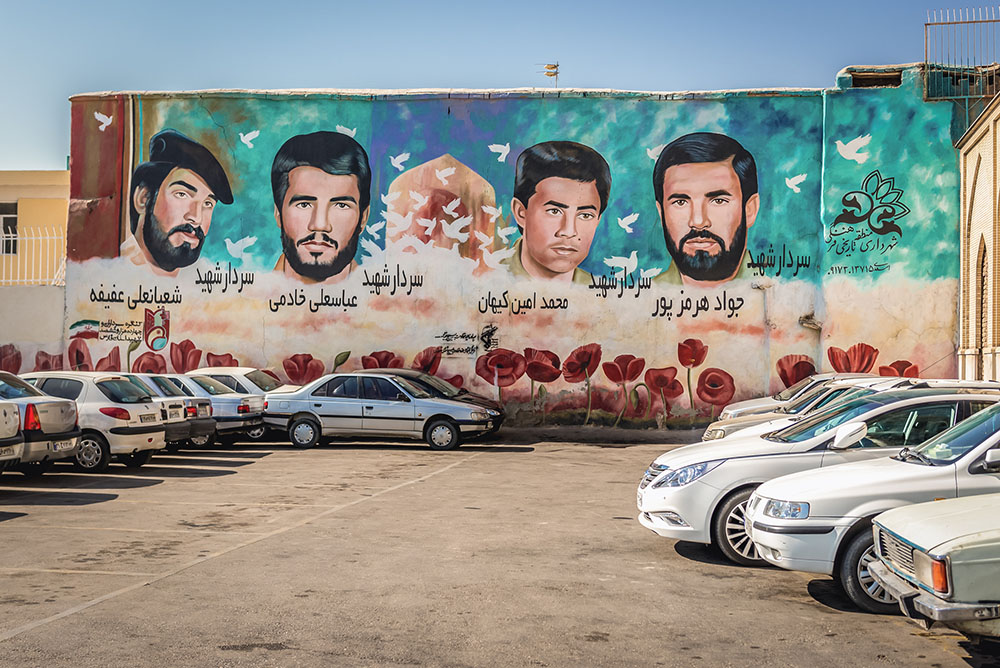
Four months later, when the good news came about Seyed Hasan, I had already given up trying to write the book several weeks earlier. My heart wasn’t in it. I was sure the government publisher would take me to court for it. But by then I would find more work teaching rich folks how to shoot stupid air guns so I could pay back the unearned money the regime had given me to start the project.
Abu Amin himself would only live another couple of months past Seyed Hasan. Long enough to vouch that Seyed had died a martyr’s death. I never visited Imamzadeh Saleh again to see if they had put up Seyed Hasan’s poster in that location. But I knew the posters were up in other spots in the city, since I’d been contacted about supplying a few photos of the martyr from our time in combat. I sent the pictures that I thought were suitable; then, finally, one day I ran into a poster of Seyed Hasan down by the Grand Bazaar where Kazem continued to sweep the ground at nights. It wasn’t too far from where the poster of our late commander had been, maybe seven buildings down on Khayyam. And there he was, Seyed Hasan, my dear friend and the nemesis of all the enemy snipers of the war. I had touched up the picture and purposefully faded his uniform so that the same hint of nostalgia that had suffused the commander’s poster would also accompany Seyed Hasan’s.
It was a busy day on Khayyam and the Grand Bazaar. A Wednesday. No one was paying Seyed Hasan and his poster any attention. Men fought over parking spaces. A little boy spilled his carrot juice and cried. A mother bought an electric fan.
When I went to give the good news about our Seyed’s poster to Kazem and the boys at that old Shush dump, I saw that their place was in the process of being razed to make way for a new apartment building.
I could have called Kazem and tried to find him. But I didn’t bother.
Then, on a Saturday, as I was watching the same man in the synagogue across from my apartment use his cellphone and thinking I’d go down there to talk to him about what I assumed was a religious infraction, I saw a familiar face. It was Safi, lurking outside the walls of the synagogue. I had promised him I’d call to set up an appointment for an interview about his past, his present, and his exploits in Iraq. But I had not given him another thought until now.
He looked up and our eyes met — me standing by my third floor window, and him by the wall of the synagogue, where someone had spray-painted something having to do with death to the king.
What king? This country hadn’t had a king in over forty years. Maybe “King” was someone’s nickname in the neighborhood, though I doubted it.
I retreated from my window, and Safi never rang my bell. And if he did, I didn’t hear it. The bell hadn’t worked since before the war.



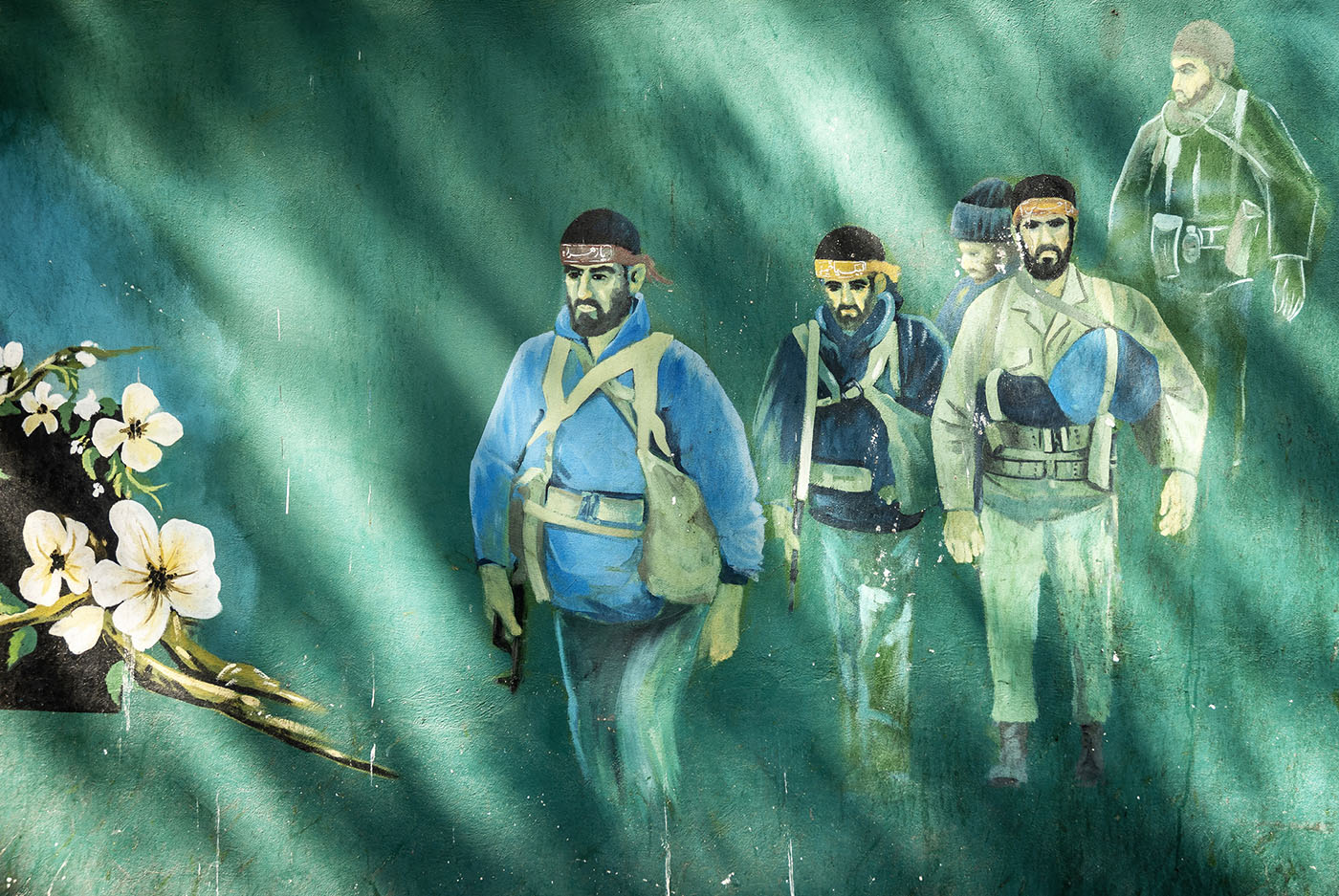
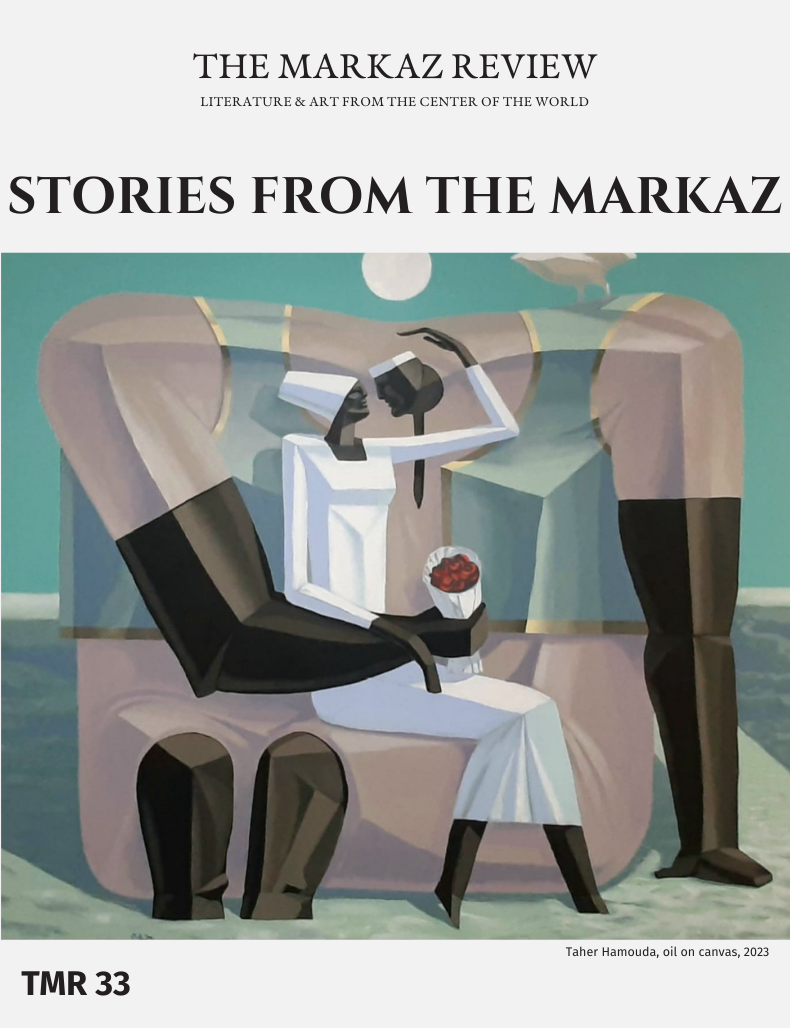
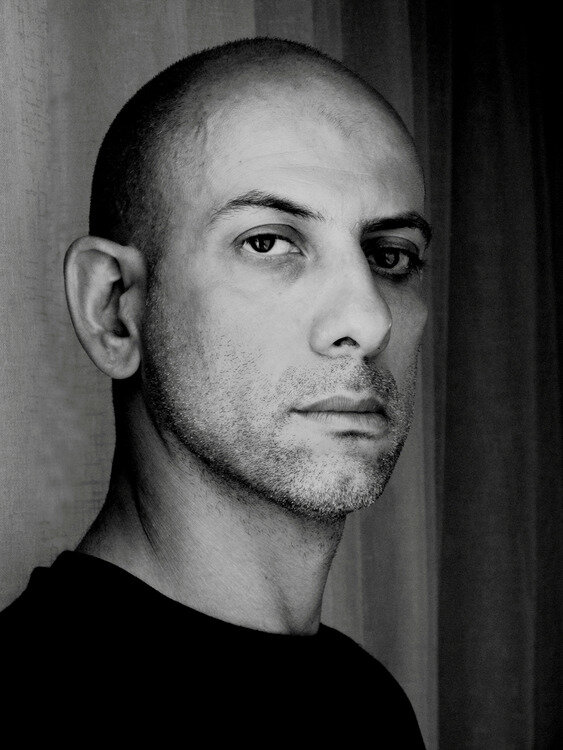
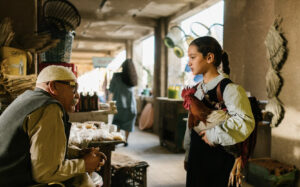
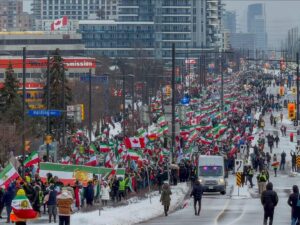
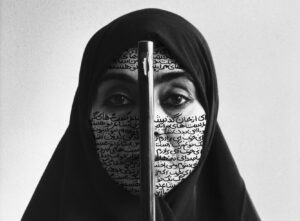


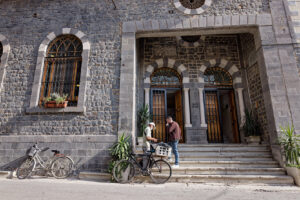


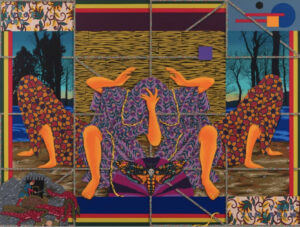

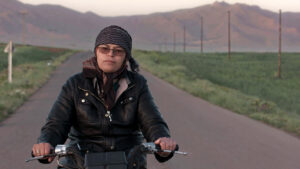






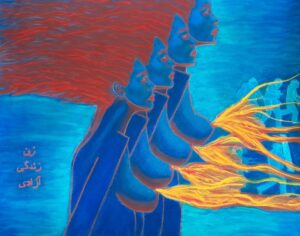







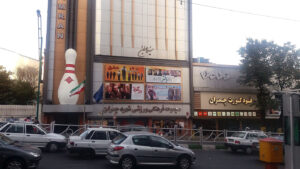







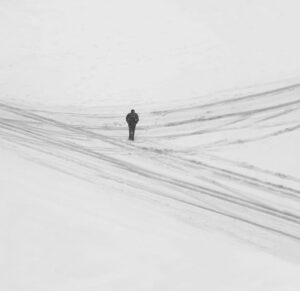




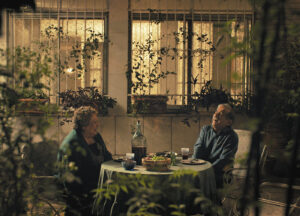
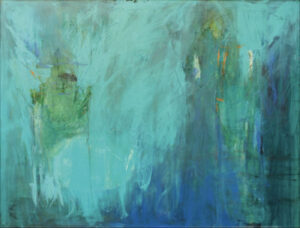




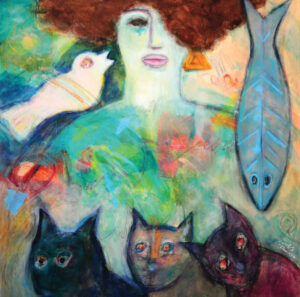
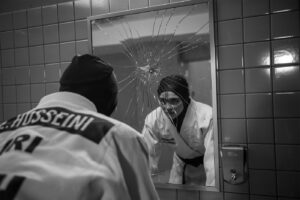







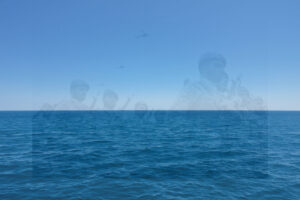

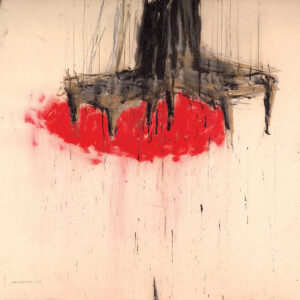





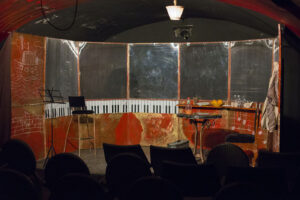









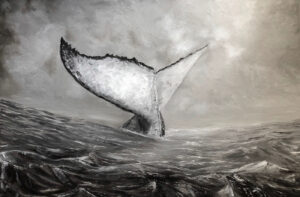



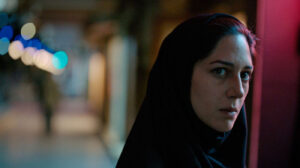





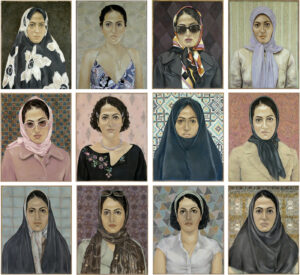








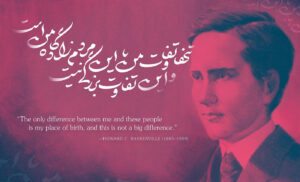

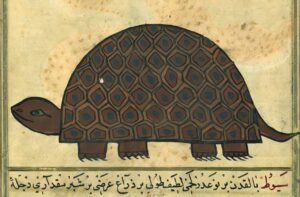





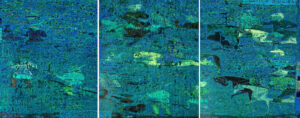
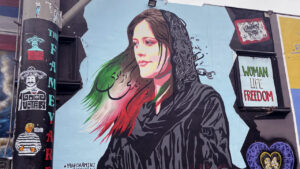
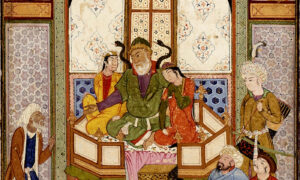









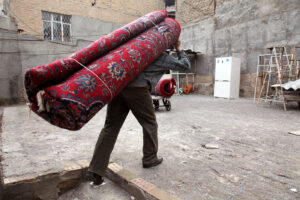













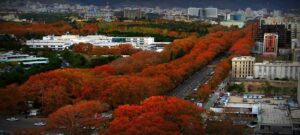


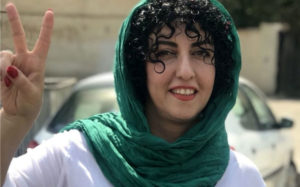


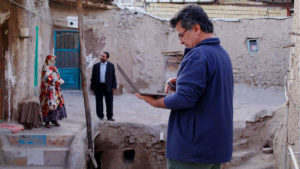





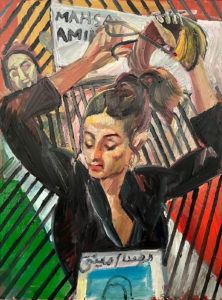
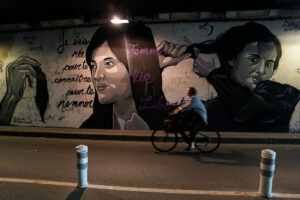
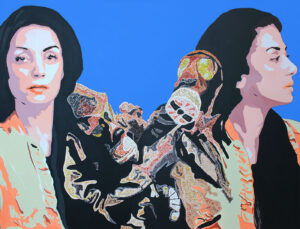








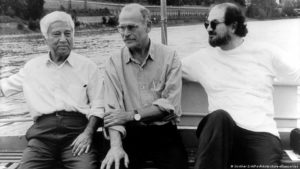



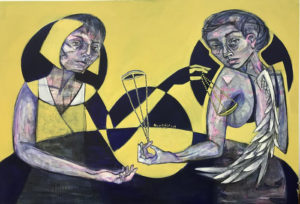






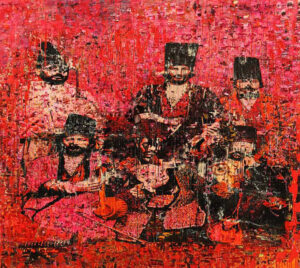





























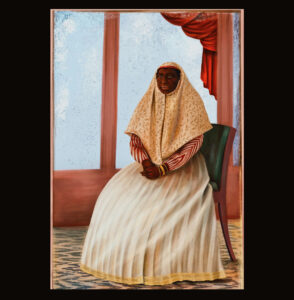











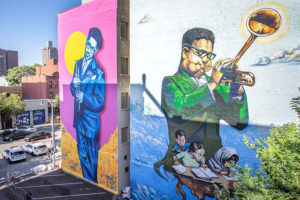


















The story touches down to the very existence of what makes us human in the un breakable Bond of men forged in war